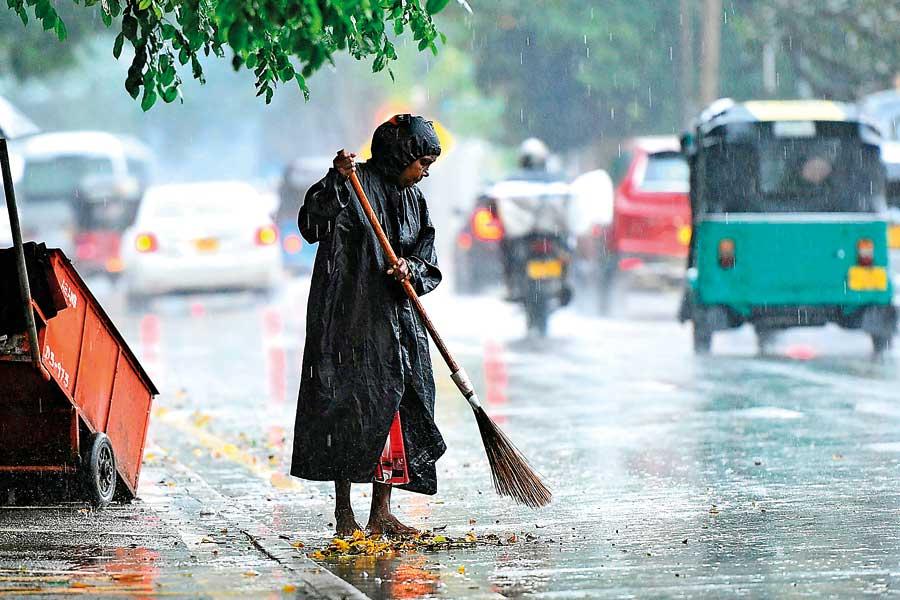21 Oct 2020 - {{hitsCtrl.values.hits}}

Especially today it is clear that the conditions that are necessary for the welfare of women employees are not being provided
The Samagi Vanitha Balavegaya (SVB) expresses its grave concern at the deleterious impact that the proposed draft 20th Amendment to the Constitution would have on women and children in Sri Lanka. We are saddened that the struggle for dignity and rights of the women of Sri Lanka may be further jeopardized due to the attempted overcentralisation of power in the Presidency.
- Decreasing the power of the Auditor General denies women access to crucial information to hold the State accountable
- Women are especially vulnerable in the area of justice
If the executive branch of our country enjoys overly extensive governing privileges, it may misuse these privileges or abuse their powers. In a democracy the system of Government should be based on a separation of powers, and the independence of those powers, specifically, that of the judiciary. The judicial branch should, therefore, institute limitations and preventives to restrain the powers of all branches so as to ensure that the acts of Governments remain as lawful as possible.
Constitutional Council
The present Constitution provides for a national consensus on appointments by requiring approval of the Constitutional Council. The proposed 20th Amendment aims to abolish these provisions. Women’s and children’s rights in public and private life have often been obtained and ensured of implementation by independent commissions like Human Rights Commission of Sri Lanka and protected by the Courts. These institutions which are vital for women and children struggling to find redress in difficult circumstances have been deeply compromised by the 20th amendment which affects their independence and impartiality, and will have a direct and harmful impact on women and children.
The proposed Parliamentary Council can only provide “observations” and there is nothing to ensure that the President will consider, still less abide by, these observations. Thus, the President will have excessive discretion to appoint persons he/she wishes to these offices. This may result in the politicization of these positions and affect the independence of these offices.
Judiciary
The 20th Amendment would in effect relegate the Judiciary to a position inferior to that of the Executive and Legislature in Sri Lanka. This is contrary to the rule of law and the basic tenets of the principles of separation of powers. An independent, impartial, honest and competent judiciary is integral to upholding the rule of law, engendering public confidence and dispensing justice. Judicial appointments to all levels must be made on merit on the basis of clearly defined criteria and by a publicly declared process. Women are especially vulnerable in the area of justice.
Auditor General
Decreasing the power of the Auditor General denies women access to crucial information to hold the State accountable for its expenditure, especially regarding State entities that make decisions which affect women and children, especially in institutions in which the majority of the employees are women. Especially today, when it is clear that the conditions that are necessary for the welfare of women employees are not being provided, they have a right to expect that the Government will hold those who put women’s lives and health accountable for the manner in which they disbursed their funds.
"The present Constitution provides for a national consensus on appointments by requiring approval of the Constitutional Council. The proposed 20th Amendment aims to abolish these provisions"
Duties of the President
The proposed amendment seeks to remove progressive legislation enhancing the People’s Sovereignty in setting out the duties of the President. In removing the President’s duty to hold free and fair elections and referenda, it impinges on People’s franchise guaranteed by the Constitution in vesting that responsibility in the President. It also removes the President’s duty to promote National Reconciliation and Integration, the most pressing need especially for the many women and children who have been affected by Sri Lanka’s decades-long history of conflict.
Conclusion:
The character of a society and the nature of a state is best represented in the recognition of fundamental rights, and in fully enabling people to enjoy and exercise these rights to the extent that preserves their humanity and respects their dignity. Life would be meaningless if individuals were not able to safely exercise their natural rights or to adopt the political opinions, they believe in. It is essential that there exist laws outlining the rights of the people and the duties of the State. For this reason, legislators have often carefully drafted rules of civil and criminal procedure. These rules should ideally include safeguards so that the State does not abuse its powers or exceed its authority to an extent that negatively affects human rights. These safeguards are indispensable to women and children in their struggle for justice and equal opportunities to contribute to the well-being and progress of Sri Lanka.
(statement by Samagi Vanitha Balavegaya)
27 Nov 2024 2 hours ago
27 Nov 2024 3 hours ago
27 Nov 2024 3 hours ago
27 Nov 2024 4 hours ago
27 Nov 2024 4 hours ago